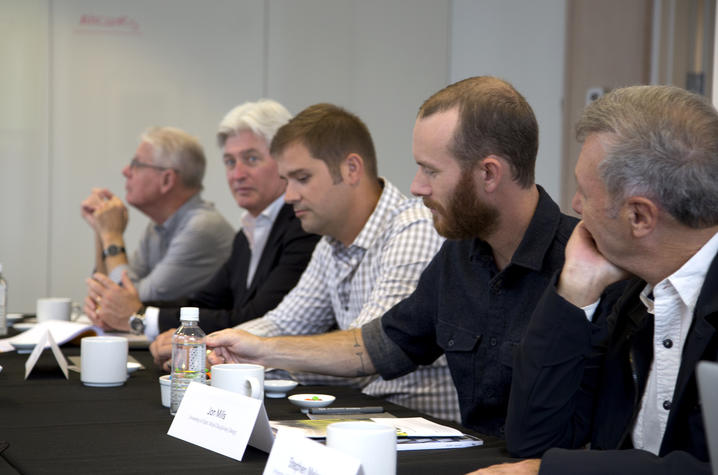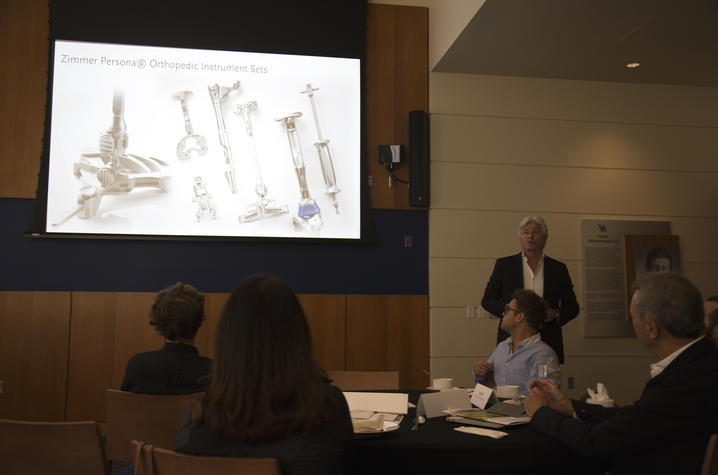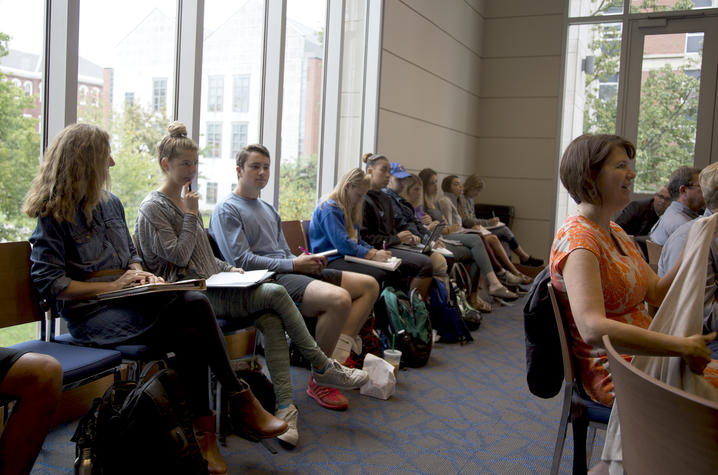UK Design Prepares for Launch of Product Design Program
LEXINGTON, Ky. (Oct. 19, 2017) — As the University of Kentucky College of Design explores ways to expand its academic reach, the idea of product design rises to the top as an axiomatic program to attract new design-driven students. In the same lineage as the college’s current programs — architecture, historic preservation and interiors — product design, also known as industrial design, will provide another scale of design exploration.
To think forward about product design education situated in the 21st century and specifically in Kentucky and at UK, Dean Mitzi Vernon held a Product Design Roundtable in September, inviting deans from tangential colleges across UK as well as external academic leaders and industry professionals to help conceptualize the new program. “There is a palpable opportunity to do something very specific with medical device development and health care service in the product design realm,” Dean Vernon explained. “With UK’s distinguished health care campus as our neighbors, we have the resources to develop a product design graduate program that offers students a unique career path. And there is no formal degree offering for undergraduate product design in the Commonwealth. We can do both.”
Hartley Feld, RN, of the College of Nursing faculty, was excited to see more opportunities for nurses and nursing students to apply their knowledge of the community and patient care environments to innovations in product design. “(Nurses) have a unique vantage point to identify design that could improve the safety, health and well-being of their patients,” Feld said. “Many nurses are out-of-the-box thinkers, but may not have the opportunity to see themselves as innovators. This new design program has amazing potential to engage a new generation of interdisciplinary health care professionals.”
Guigen Zhang, professor and chair of the Department of Biomedical Engineering (BME), was one of the academic participants in the two-day roundtable. For Zhang, the cross-disciplinary opportunities with the College of Design are an obvious extension of BME’s long-term plans. “I see joint efforts between the BME Department and the College of Design, as well as other colleges, would allow us to take advantage of the existing strengths on campus to quickly build new programs,” he said. “This will attract and retain more students, including women and underrepresented minorities, to learn, work and earn to their full potential.”
Admittedly, the similarities of design and engineering took him by surprise. “In my outdated view, an engineer was bounded by constraints, but a designer had no such boundaries,” Zhang said. “This view was shattered by my experience attending the Product Design Roundtable. To my surprise, not only does the designer face the same constraints as the engineer does, but the designer is also concerned about the human acceptance of a product, a tall order.”
Yet it’s this emphasis on the human-centric angle that appeals to industry professionals such as Bryce Rutter, a renowned international expert in ergonomics for product design and founder and CEO of Metaphase Design Group, who also attended the roundtable.
“Developing the well-rounded designer who understands the fundamentals, design-thinking skills and ergonomics of design is crucial,” Rutter said. “With the College of Design interacting with engineering and the medical school, it has a lot of traction. You’ll get people already predisposed to want to go to a university that has these interdisciplinary facilities.”
And if you nurture these types of students, they will evolve into professionals teeming with the skills companies are looking for.
Having held leadership roles in design at Proctor & Gamble, Yamilca Rodriguez is now a principal at Louisville Bespoke, where she guides emerging designers in both design and business.
“The need for more innovation, incubators and startups are crucial to the development of cities in Kentucky,” Rodriguez explained. “With the product design program (at the College of Design), I believe Kentucky will benefit from companies moving to Kentucky with the workforce that is needed.”
With the backing of numerous academic and professional innovators after this two-day think tank session, the College of Design is ready to take the next steps to mobilize this new venture, ensuring the longevity and planned growth for the college.







